
17 October 2023
Sustainability Compliance Overview – Pilario
As a sustainability solution software, there are numerous legislations, regulations and global initiatives you have to follow or, at very least be compliant to. We understand that it can be challenging to keep track of all these initiatives, which is why we provide you with an overview of all the different legislations, certifications and global initiatives we are compliant with.
First we will give you an overview of what’s in the article and then we take a closer look at each of those certifications and legislations.
Let’s dive in, and if you have any comments or queries, please feel free to schedule a meeting with one of our sustainability experts.
- United Nations
- The United Nations Global Compact
- The Sustainable Development Goals
- Corporate Social Responsibility
- Sustainability Reporting
- The Global Reporting Initiative (GRI)
- Corporate Social Responsibility (CSR)
- Environmental Social and Governance Reporting (ESG)
- The Corporate Sustainability Reporting Directive (CSRD)
- International Financial Reporting Standards (IFRS)
- Sustainability Accounting Standards Boards (SASB)
- Organization for Economic Cooperation and Development (OECD)
- European Union
- The European Green Deal
- The Circular Economy Action Plan
- Ecodesign for Sustainable Products Regulation (ESPR)
- Green Public Procurement (GPP)
- Energy Efficiency
- The Energy Efficiency Directive (EED)
- The Methodology for Ecodesign of Energy-related Products (MEErP)
- ISO & EN Compliant
- ISO 14040
- ISO 14021
- ISO 14025
- EN 15804
- ISO 14067
- Pilario: A Sustainability Software Solution for Compliance and Precision
The grouping is structured around the shared goals and objectives of the organizations and initiatives mentioned. For example, the United Nations Global Compact and the Sustainable Development Goals are both concerned with promoting sustainable development at a global scale.
Moreover, sustainability reporting is essential for businesses and organizations to track and measure their progress towards sustainability goals.
Additionally, energy efficiency is a key component of sustainability, and the EED and MEErP are two important European Union initiatives in this area.
Furthermore, ISO certification provides a framework for organizations to manage their environmental impacts, and the standards listed are all relevant to sustainability. Finally, EN 15804 is a European standard that provides criteria for the environmental performance of construction products.
United Nations
United Nations Global Compact
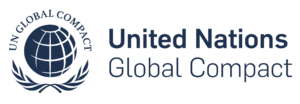 The United Nations Global Compact is a non-binding United Nations pact to get businesses and firms worldwide to adopt sustainable and socially responsible policies, and to report on their implementation. The UN Global Compact provides a universal means of discussing corporate responsibility and offers a framework to steer all enterprises, no matter their size, complexity, or position.
The United Nations Global Compact is a non-binding United Nations pact to get businesses and firms worldwide to adopt sustainable and socially responsible policies, and to report on their implementation. The UN Global Compact provides a universal means of discussing corporate responsibility and offers a framework to steer all enterprises, no matter their size, complexity, or position.
The Sustainable Development Goals (SDGs)
 The 17 SDGs, a global call to action to eliminate poverty, protect the environment, and provide prosperity for everyone. Companies contribute directly to global sustainability objectives by aligning their business strategy with particular SDGs (click here to learn more).
The 17 SDGs, a global call to action to eliminate poverty, protect the environment, and provide prosperity for everyone. Companies contribute directly to global sustainability objectives by aligning their business strategy with particular SDGs (click here to learn more).
Sustainability Reporting
Global Reporting Initiative (GRI)
 Global Reporting Intitiative (GRI), the global leader in sustainability reporting, sets comprehensive standards for organizations. This promotes transparency and accountability across economic, environmental, and social aspects. Whether you call it non-financial, CSR, or ESG reporting, GRI Standards are your trusted choice.
Global Reporting Intitiative (GRI), the global leader in sustainability reporting, sets comprehensive standards for organizations. This promotes transparency and accountability across economic, environmental, and social aspects. Whether you call it non-financial, CSR, or ESG reporting, GRI Standards are your trusted choice.
Corporate Social Responsibility (CSR)
 Corporate Social Responsibility (CSR) expands on this commitment by encouraging corporations to think beyond profit and actively participate in societal and environmental improvement. CSR promotes both the UN Global Compact Principles and the SDGs (click here to learn more).
Corporate Social Responsibility (CSR) expands on this commitment by encouraging corporations to think beyond profit and actively participate in societal and environmental improvement. CSR promotes both the UN Global Compact Principles and the SDGs (click here to learn more).
Environmental Social and Governance Reporting (ESG)
ESG reporting, which stands for Environmental, Social, and Governance reporting, is a way for companies to disclose their performance in these three key areas. Subsequently, companies use ESG reports to communicate their sustainability and ethical practices to investors, stakeholders, and the public. This, in turn, helps assess a company’s impact on the environment, society, and its governance structure.
Furthermore, companies with strong ESG reporting and ratings enjoy benefits like improved financing offers from banks and investors. Consequently, this solid foundation sets the stage for future growth and success.
The Corporate Sustainability Reporting Directive (CSRD)
 The Corporate Sustainability Reporting Directive (CSRD) is a European initiative, mandated by the European Parliament and Council. Its purpose is to require sustainability reporting from large and listed companies within the European Union, succeeding the Non-Financial Reporting Directive (NFRD) of 2014.
The Corporate Sustainability Reporting Directive (CSRD) is a European initiative, mandated by the European Parliament and Council. Its purpose is to require sustainability reporting from large and listed companies within the European Union, succeeding the Non-Financial Reporting Directive (NFRD) of 2014.
International Financial Reporting Standards (IFRS)
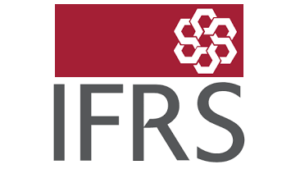 International Financial Reporting Standards (IFRS) are a worldwide set of rules for accounting that enhance clarity and responsibility in a company’s financial reports. Notably, it insists that businesses reveal details regarding their environmental and social impacts. Consequently, this practice assists investors in making better investment choices and ensures that companies are answerable for their sustainability efforts.
International Financial Reporting Standards (IFRS) are a worldwide set of rules for accounting that enhance clarity and responsibility in a company’s financial reports. Notably, it insists that businesses reveal details regarding their environmental and social impacts. Consequently, this practice assists investors in making better investment choices and ensures that companies are answerable for their sustainability efforts.
Sustainability Accounting Standards Boards (SASB)
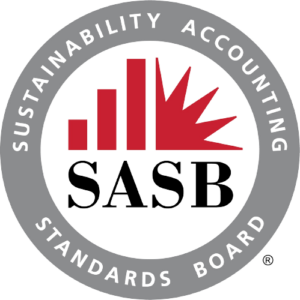 The Sustainability Accounting Standards Board (SASB) is a non-profit organization that creates accounting guidelines for financial information linked to sustainability. SASB Standards are made to pinpoint and standardize the disclosure of sustainability matters that matter most to investors across 77 different industries. These standards aim to provide clear, comparable, and cost-effective information about sustainability-related finances. By doing so, SASB Standards enhance the transparency and comparability of sustainability reporting, ultimately encouraging innovation in sustainability.
The Sustainability Accounting Standards Board (SASB) is a non-profit organization that creates accounting guidelines for financial information linked to sustainability. SASB Standards are made to pinpoint and standardize the disclosure of sustainability matters that matter most to investors across 77 different industries. These standards aim to provide clear, comparable, and cost-effective information about sustainability-related finances. By doing so, SASB Standards enhance the transparency and comparability of sustainability reporting, ultimately encouraging innovation in sustainability.
Organization for Economic Cooperation and Development (OECD)
The OECD is an international economic organization that advances sustainable development by offering guidance and assistance to countries in adopting practices such as environmentally friendly growth, sustainable farming, climate action, and policies to safeguard biodiversity. Their efforts in the realm of sustainability help nations enhance their environmental practices, stimulate economic progress, and enhance the quality of life for their populations.
European Union
The European Green Deal
 The EU Green Deal represents an ambitious roadmap to make Europe the world’s first climate-neutral continent by 2050. It includes a wide range of initiatives aimed at combating climate change, preserving biodiversity, and encouraging a circular economy.
The EU Green Deal represents an ambitious roadmap to make Europe the world’s first climate-neutral continent by 2050. It includes a wide range of initiatives aimed at combating climate change, preserving biodiversity, and encouraging a circular economy.
The Circular Economy Action Plan
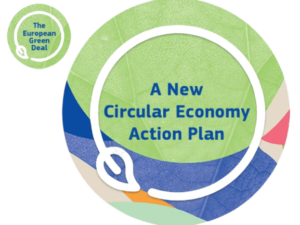 The Circular Economy Action Plan is a crucial part of the EU Green Deal, designed to accelerate the transition to a sustainable and resource-efficient economy. The primary objective of this plan is to transform production and consumption practices, reduce waste, and promote the principles of a circular economy. This involves promoting Extended Producer Responsibility measures, making producers responsible for their products from design to disposal.
The Circular Economy Action Plan is a crucial part of the EU Green Deal, designed to accelerate the transition to a sustainable and resource-efficient economy. The primary objective of this plan is to transform production and consumption practices, reduce waste, and promote the principles of a circular economy. This involves promoting Extended Producer Responsibility measures, making producers responsible for their products from design to disposal.
Ecodesign for Sustainable Products Regulation (ESPR)
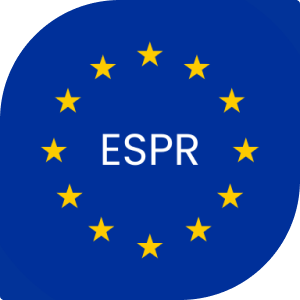 The Ecodesign for Sustainable Products Regulation (ESPR), an European Union initiative, is aimed at enhancing the environmental performance of various products throughout their life cycles. ESPR sets eco-design requirements for specific product categories. Moreover, it promotes a circular economy and empowers consumers with clear product information. This comprehensive approach ultimately works to reduce waste, lower greenhouse gas emissions, and drive sustainability in the EU. It’s important to note that the regulation is subject to periodic updates to remain aligned with evolving environmental standards and technological advancements.
The Ecodesign for Sustainable Products Regulation (ESPR), an European Union initiative, is aimed at enhancing the environmental performance of various products throughout their life cycles. ESPR sets eco-design requirements for specific product categories. Moreover, it promotes a circular economy and empowers consumers with clear product information. This comprehensive approach ultimately works to reduce waste, lower greenhouse gas emissions, and drive sustainability in the EU. It’s important to note that the regulation is subject to periodic updates to remain aligned with evolving environmental standards and technological advancements.
Green Public Procurement (GPP)
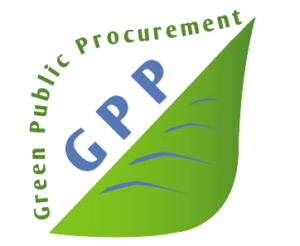 Green Public Procurement is the process by which public authorities take into account environmental, social and economic considerations when purchasing goods and services. This means considering the environmental impact of a product or service from the extraction of its raw materials to its disposal, rather than just the purchase price.
Green Public Procurement is the process by which public authorities take into account environmental, social and economic considerations when purchasing goods and services. This means considering the environmental impact of a product or service from the extraction of its raw materials to its disposal, rather than just the purchase price.
Energy Efficiency
The Energy Efficiency Directive (EED)
 The Energy Efficiency Directive (EED) is a European Union directive that sets energy efficiency targets for member states and requires them to take measures to improve energy efficiency.
The Energy Efficiency Directive (EED) is a European Union directive that sets energy efficiency targets for member states and requires them to take measures to improve energy efficiency.
The Methodology for Ecodesign of Energy-Related Products (MEErP)
 The MEErP methodology utilized by the European Commission, is used to develop ecodesign regulations for energy-related products. These regulations, in turn, set minimum energy efficiency standards for products and require manufacturers to provide information about the energy consumption and other environmental impacts of their products.
The MEErP methodology utilized by the European Commission, is used to develop ecodesign regulations for energy-related products. These regulations, in turn, set minimum energy efficiency standards for products and require manufacturers to provide information about the energy consumption and other environmental impacts of their products.
ISO & EN Compliant
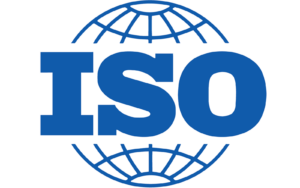 ISO 14040
ISO 14040
The ISO 14040 provides a comprehensive framework for life cycle assessment (LCA). It covers essential aspects, including defining LCA goals and scope, conducting life cycle inventory analysis (LCI), and evaluating life cycle impacts (LCIA). Additionally, it involves interpreting results, reporting, critical review, and addressing limitations.
The standard also outlines the connection between LCA phases and the considerations for value choices and optional elements (Learn More).
ISO 14021
ISO 14021 is an international standard that provides guidelines for environmental labeling. Environmental labeling is a way of communicating the environmental performance of a product or service to consumers (Learn More).
ISO 14067
The ISO 14067 is an international standard that guides the measurement and reporting of a product’s carbon footprint (CFP), which represents the total greenhouse gas emissions throughout its entire life cycle, from raw material extraction to disposal (Learn More).
ISO 14025
ISO 14025 is an international standard that provides guidelines for environmental product declarations (EPDs). EPDs are documents that communicate the environmental performance of a product over its life cycle (Learn More).
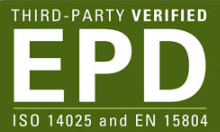
EN 15804
The EN 15804 is a European standard that provides criteria for the environmental performance of construction products. EN 15804 is used by construction product manufacturers, suppliers, and specifiers to improve the environmental performance of their products and to make more informed decisions about the materials they use. It is also used by governments and other organizations to develop and implement environmental policies and standards.
Pilario: Your Sustainability Software Solution for Compliance and Precision
Pilario provides you with a sustainability software solution that corresponds to a wide range of certifications, regulations, and initiatives as mentioned above.
Utilize Pilario to perform Life Cycle Assessments (LCAs) for a single product or your whole product portfolio at once, employing a validated methodology and supplier data to ensure precision, all while remaining in compliance.